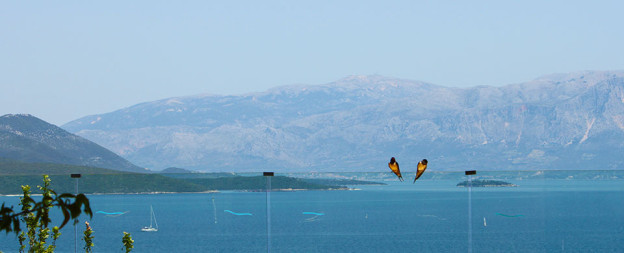Public interest and sensitivity towards Lafcadio is steadily rising and spreading.
An Open-minded Sense of Beauty
Do not we Occidentals shrink from many purely natural impressions by reason of repulsion developed through a morbid tactual sensibility? The question is at least worth considering. Ignoring or mastering such repulsion,—accepting naked Nature she is, always lovable when understood,—the Japanese discover beauty where we blindly imagine ugliness or formlessness or loathsomeness,—beauty in insects, beauty in stones, beauty in frogs. Is the fact without significance that they alone have been able to make artistic use of the form of the centipede?… You should see my Kyōtō tobacco-pouch, with centipedes of gold running over its figured leather like ripplings of fire!
“Frogs”, Exotics and Retrospectives
A Message to Japan’s Future
Assuredly in the future competition between West and East, the races most patient, most economical, most simple in their habits will win. The costly races may totally disappear as the result. Nature is a great economist. She makes no mistakes. The fittest to survive are those best able to live with her, and to be content with a little. Such is the law of the universe.
“The Future of the Far East” (Hearn’s lecture in Kumamoto, 27th January, 1894)
A Cautionary Word for Humanists
What made the aspirational in life? Ghosts. Some are called Gods, some Demons, some angels;—they changed the world for man; they gave him courage and purpose and the awe of Nature that slowly changed into love;—they filled all things with a sense and motion of invisible life—they made both terror and beauty. There are no ghosts, no angels and demons and gods: all are dead. The world of electricity, steam, mathematics, is blank and cold and void.
Hearn’s letter to Basil Hall Chamberlain, 14th December, 1893
The Trees have Spirits—Truth of the Universe
That trees, at least Japanese trees, have souls, cannot seem an unnatural fancy to one who has seen the blossoming of the umenoki and the sakuranoki. This is a popular belief in Izumo and elsewhere. It is not in accord with Buddhist philosophy, and yet in a cosmic truth than the old Western orthodox notion of trees as “things created for the use of man.”
“In a Japanese Garden”, Glimpses of Unfamiliar Japan vol.2
A Pioneer who Shone a Light on Folk Music
I must in honesty confess that I am not an appreciant of Wagner, and that I have always been much impressed and charmed by primitive music. African music, and Spanish-American melodies I am quite infatuated about, and neither of these considered as related to the higher musical sense. But I feel sure if you were in Izumo, I could make hear some music, both instrumental and vocal, which you would acknowledge to be more that “pretty.”
Hearn’s letter to Basil Hall Chamberlain, November, 1890
